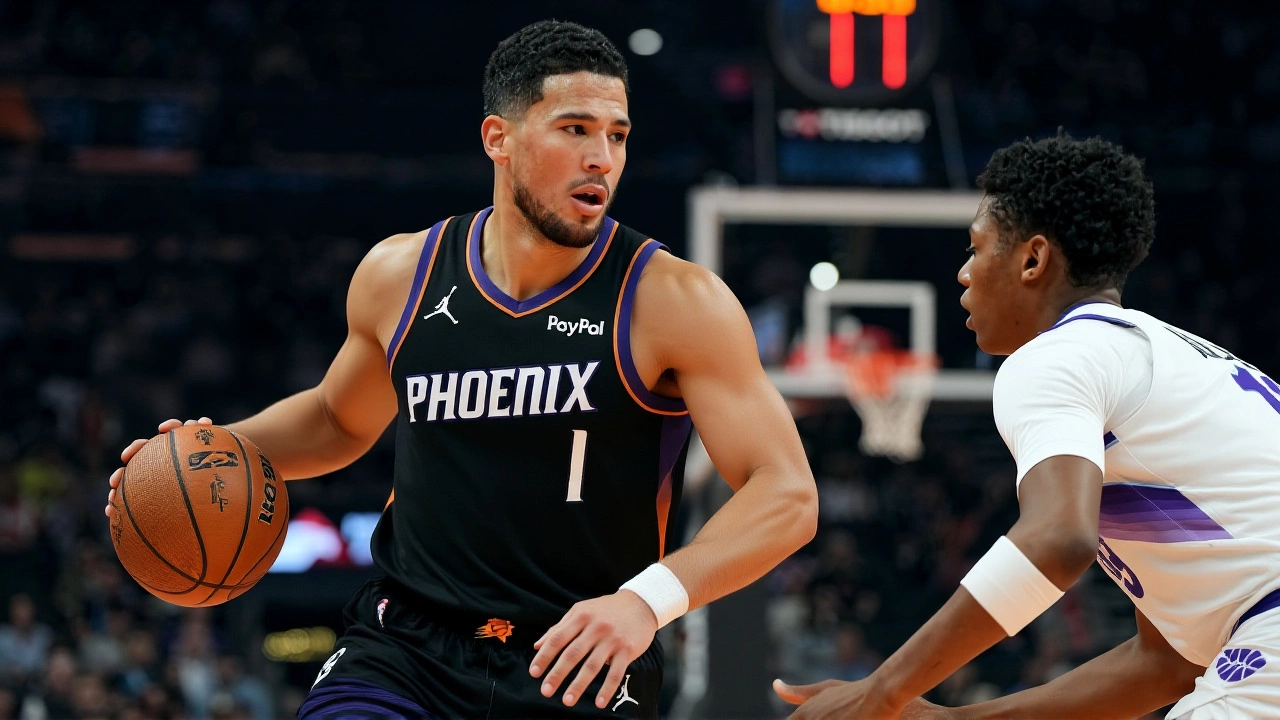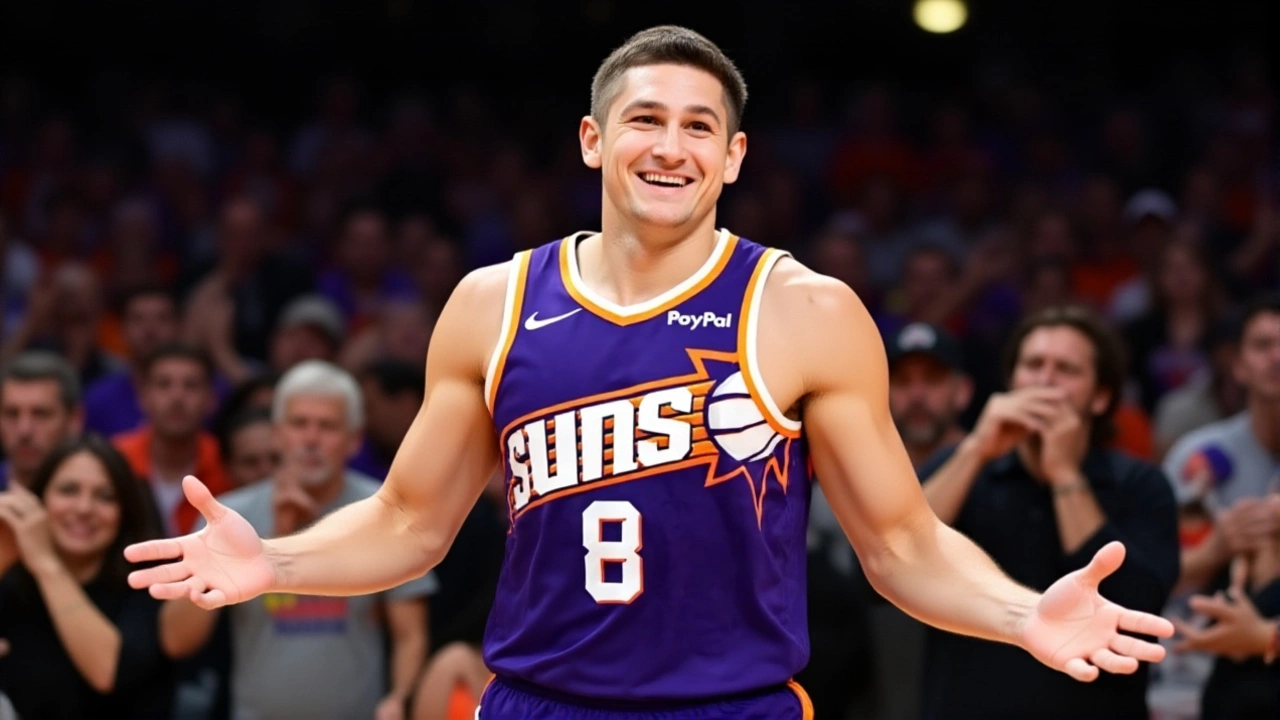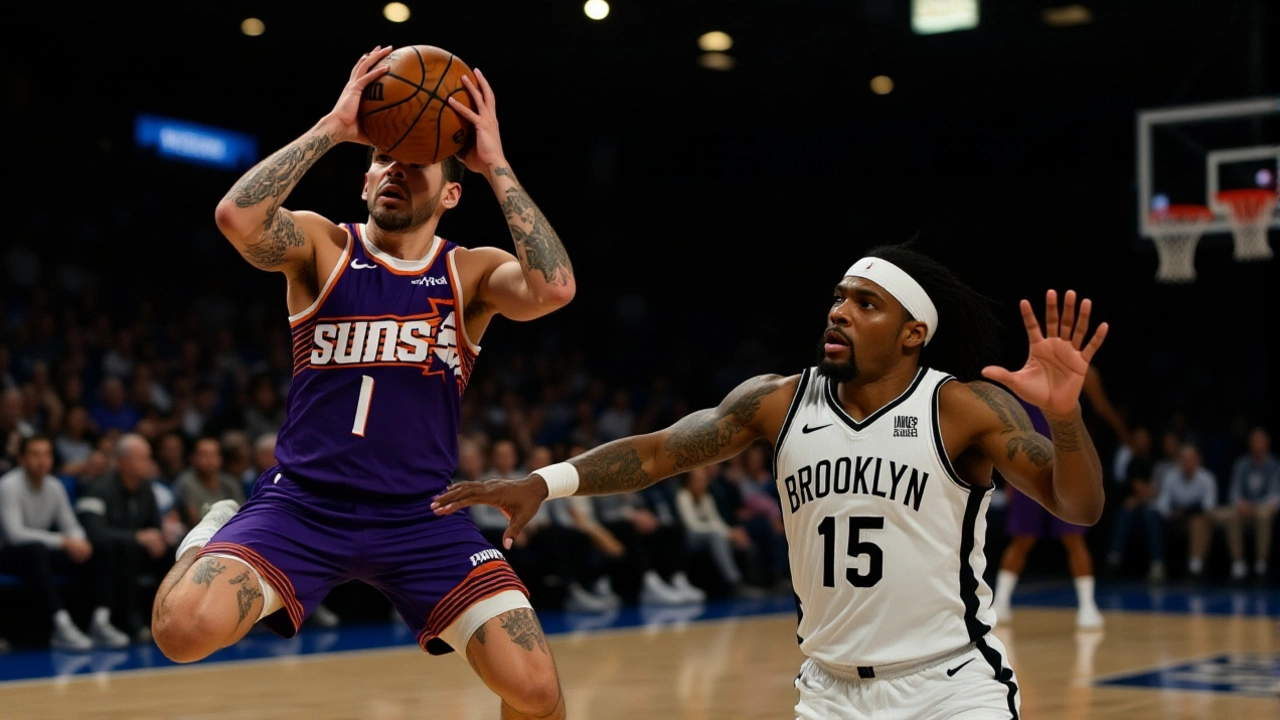The Phoenix Suns didn’t just beat the Portland Trail Blazers — they exposed a fatal flaw in their game plan. On Tuesday, November 18, 2025, at the Moda Center in Portland, Oregon, the Suns rolled to a 127-110 victory, shattering pre-game expectations and handing the Blazers their third loss in four games. Devin Booker led the charge with 19 points, but it was the Suns’ relentless attack on the defensive glass — and Portland’s glaring inability to protect it — that turned the game into a rout. The win improved Phoenix’s record to 9-6, while Portland fell to 6-8, a stunning reversal after oddsmakers had installed the Blazers as 2.5-point favorites with an over/under of 237.5 points.
From Streak-Ending Loss to Statement Win
Just two nights earlier, the Suns had their five-game winning streak snapped by the Atlanta Hawks in a heartbreaker: 124-122. Fans wondered if Phoenix had hit a wall. But instead of crumbling, they responded with one of their most complete road performances of the season. The Suns didn’t just show up — they outworked, outplayed, and outsmarted a team that had been scoring efficiently all season. "They came in with a chip on their shoulder," said one arena staffer who asked not to be named. "You could feel the energy shift the moment Booker hit that baseline jumper in the third quarter. It wasn’t just scoring — it was confidence."The Rebounding Collapse That Doomed Portland
The numbers tell the real story. The Trail Blazers entered the game ranked second in the NBA in offensive rebounds — a strength built on the hustle of players like Deni Avdija and Shaedon Sharpe. But they were third from the bottom in defensive rebounds. That’s not a typo. It’s a catastrophe waiting to happen. And it did. The Suns grabbed 14 offensive boards — more than any Portland opponent had managed all season. That translated into 22 second-chance points. When the Blazers missed, Phoenix didn’t just recover — they converted. And when Phoenix missed, they didn’t let Portland get a clean look. That’s the difference between a competitive game and a 17-point blowout."They killed us on the glass," said Tiago Dias Splitter, Portland’s head coach, after the game. "We knew they were going to attack the rim. We didn’t know they’d attack our defense like that."
Statistical Contradictions and Betting Upsets
Pre-game analysis had been overwhelmingly in Portland’s favor. FOX Sports predicted a 122-117 Blazers win. Action Network’s top bet was Suns +2.5 at -115. Even the over/under — 236.5 to 237.5 — suggested a high-scoring, close contest. Instead, Phoenix scored 127 points — their highest total on the road since last March — while holding Portland to just 110. The Suns shot 51% from the field, their best road percentage in over a year. Meanwhile, Portland’s 45.3% shooting felt sluggish, especially after averaging 46.9% in their previous five games.The Suns’ defense, often overlooked, was the quiet hero. They forced 15 turnovers, blocked six shots, and recorded 12 steals — a number that ranked them fourth in the league this season. Their ability to disrupt passing lanes, especially in transition, turned Portland’s fast-break offense into a series of contested jumpers. "We knew they’d come out aggressive," said Suns guard Kevin Durant, who added 23 points and eight assists. "But we didn’t let them get comfortable. We made them play half-court basketball — and they’re not built for that."

Historical Context: A Franchise Rivalry Rekindled
This wasn’t just another win. It was the 52nd meeting between the two franchises, dating back to 1970. Home teams had won 27 of those games; away teams, 24. But never in the last seven matchups had the Suns won by more than 10 points — until now. The last time Phoenix won in Portland by double digits? October 2019. And that was before the Suns’ current core even fully formed. The win also snapped a three-game losing streak in Portland for Phoenix, a venue where they’d struggled since 2021.For the Blazers, the loss deepens concerns about consistency. Despite averaging 121.5 points per game — more than the Suns — their defense has been erratic. They’ve allowed 122.2 points per game on average, yet still managed to go 5-4 when scoring above that number. That’s not sustainable. When you’re giving up 120+ points and winning, you’re skating on thin ice. Tonight, the ice cracked.
What’s Next for Both Teams?
The Suns, now winners of three straight, head to Sacramento on Friday with momentum building. Their 12th-ranked scoring offense and 10th-ranked defense suggest they’re peaking at the right time. With James Jones managing roster rotations and owner Mat Ishbia quietly investing in depth, Phoenix looks like a legitimate Western Conference threat.Portland, meanwhile, faces a tough stretch: three games in four nights, including a home match against the Lakers. Coach Splitter will need to fix the rebounding issue — and fast. Without it, their offensive firepower won’t matter. The Blazers are talented, but talent without discipline is just noise.

Why This Game Matters Beyond the Box Score
This wasn’t just about points or rebounds. It was about identity. The Suns proved they’re more than a high-octane offense. They’re a team that can grind, adapt, and dominate when it counts. For Portland, it’s a wake-up call. You can’t rely on scoring alone in the NBA. Defense wins championships — and even playoff spots. The Blazers are flirting with the play-in tournament, but they’re not playing like they believe it’s possible.Frequently Asked Questions
How did Devin Booker’s performance compare to his season average?
Booker scored 19 points, just below his season average of 24.3 per game — but his impact went beyond scoring. He added seven assists, three rebounds, and two steals, playing 34 minutes with only one turnover. His efficiency (8-of-16 FG) and composure in crunch time helped stabilize the Suns’ offense after their early-season inconsistency.
Why did Portland struggle so much on defense despite high scoring?
Portland’s offense thrives on pace and spacing, but their defense lacks structure. They rank 28th in defensive rebounds and 25th in opponent field goal percentage in the paint. Against Phoenix, they failed to close out on shooters and let the Suns drive repeatedly. Their lack of rim protection and weak interior rotation made them vulnerable to pick-and-roll attacks.
What does this result mean for the Western Conference playoff race?
The Suns’ win moves them into the top eight in the West, just one game behind the Lakers and Clippers. With the Trail Blazers now three games behind the eighth seed, Portland’s playoff hopes are slipping. Phoenix’s depth and defensive improvement could make them a dangerous first-round opponent — especially if they maintain this level of rebounding discipline.
Were there any injuries that affected the outcome?
Portland’s starting center, Jusuf Nurkić, missed the game due to a left ankle sprain suffered in the previous matchup against Dallas. His absence left a void in rebounding and interior defense, which Phoenix exploited with 14 offensive boards. The Suns had no major injuries, allowing them to rotate freely and maintain defensive intensity throughout the game.
How did the betting market react after the game?
Oddsmakers adjusted quickly. The Suns’ next road game odds shifted from +3.5 to +1.5, reflecting newfound confidence in their defense. Meanwhile, Portland’s next home game odds dropped from -4 to -6.5, signaling concern over their rebounding issues. Parlay bets featuring Booker for 6+ assists and Avdija for 30+ points/assists both lost, causing a short-term payout spike for those who bet against the consensus.
What’s the historical significance of this win for the Suns franchise?
This was Phoenix’s first 120+ point road win against Portland since 2017. It also marked the first time since 2020 that the Suns won in Portland by 17+ points. With owner Mat Ishbia’s investment in coaching and analytics, this win signals a return to elite competitiveness — something the franchise hasn’t consistently achieved since their 2021 NBA Finals run.

Write a comment